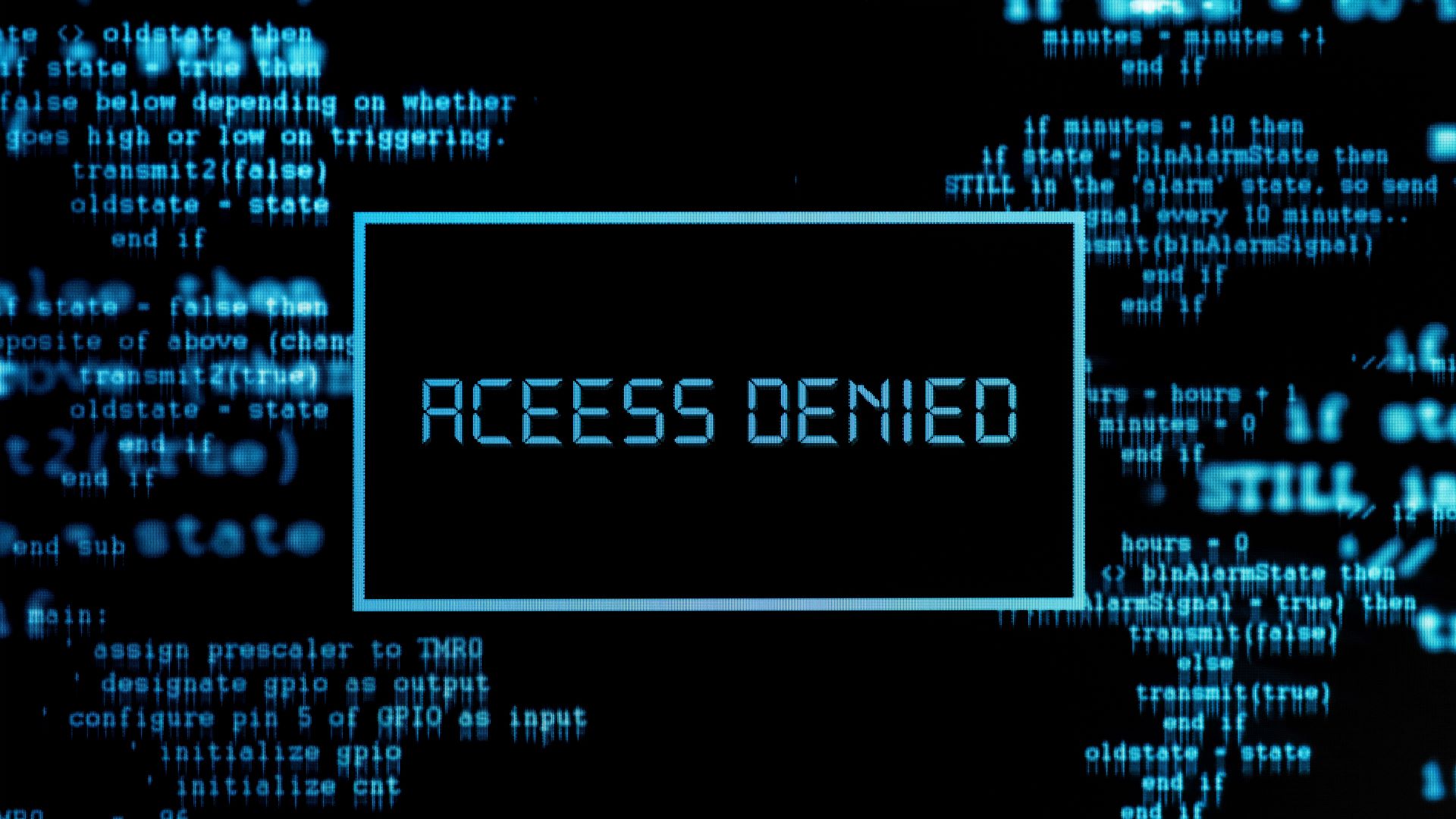Is the future of censorship-resistant VPNs, no VPNs?
VPNs are currently keeping together the pieces of a splintered internet, but new solutions may be needed

Year in and year out, the idea of an open and connected internet is fading away, farther and farther. More countries are imposing some form of internet censorship, in fact, with the likes of China, Russia, and Iran building ever-higher fences around their national sovereign network.
It's in this context that the best VPN apps have become essential tools for the many people worldwide struggling to access uncensored news, stay socially connected, work, and study on the internet. In 2024 alone, Proton VPN recorded a surge of new users in 119 countries across the world.
Experts have long compared censorship to a mouse-and-cat game, where circumventing tools must adapt to new tactics, challenges, and threats. So, should the future of censorship-resistant technology go beyond VPN services? And, more importantly, is that even possible?
The limits of VPNs
The first thing to consider is that VPNs weren't initially intended to be strict censorship circumvention tools. Instead, they're designed as security software that boosts online anonymity.
A VPN's main job is to encrypt your internet connections to prevent third-party access while masking your real IP address, securing an important piece of identifiable metadata.
IP-spoofing, however, became an efficient tactic to bypass censorship. It de facto enables you to evade internet blocks by making you appear as if you're browsing from a country where such restrictions aren't in place.
While more people began using VPN software as censorship-resistant tools, governments have been getting better at detecting and blocking their usage. Almost 200 VPNs are already blocked in Russia at the time of writing, for example, with Apple and Google increasingly receiving removal orders from the Kremlin.

Censors are not limited to improving their tactics, though. New ad-hoc laws that regulate the use of VPNs have also been enforced in a few countries so far.
Again, Russia's orders to app stores have been issued under a law enforced in March last year that criminalizes the spread of information about censorship circumvention – VPNs included.
Iran outlawed "unauthorized" VPNs, banning their usage without a legal permit, then resurrected an internet bill that could put VPN usage at further risk. VPNs are also the main target of Myanmar's new cybersecurity law.
Another issue with most VPN solutions available right now may be linked to their centralized infrastructure. Not all VPNs are made equal, and not all VPNs take care to protect people's data. This is why new providers entering the market right now, like NymVPN, are moving toward a decentralized network instead.
Worse still, though, sometimes the people censoring and surveilling the internet in the first place are those developing VPN services. For instance, at least five of the most popular free VPN apps available in official app stores have been recently found to have links with the Chinese army.
Moving beyond VPNs
It's in this context that some experts believe it's now the time to innovate censorship circumvention tactics and move beyond the use of VPN solutions.
Talking about this concept during a panel at SplinterCon last February in Taipei, human rights technologist and Founder of the Social Web Foundation Mallory Knodel said: "Rather than dealing with circumvention with separate applications, what if you start baking it into the service itself? What if the service itself is responsible for its resilience?"
Together with Google Jigsaw's Lead Engineer Vinicius Fortuna, Knodel presented a strategy to minimize the need for VPNs and embrace a decentralized infrastructure where stronger circumvention and obfuscation protocols – such as QUIC (Quick UDP Internet Connections), Encrypted Client Hello, and others – are directly embedded within the application.
Without going into technicalities, the idea is that the apps we all use every day, and that can be targeted by censorship – whether that's a newsreader, email, or social media services – should be built to be censorship-resistant in the first place.

A Venezuelan digital rights group developed an application to access censored news without the need for a VPN. Noticias Sin Filtro uses a lot of fallback VPNs, including Google Outline VPN, to ensure that, if one VPN solution doesn't work, it will fall back to the second, then to the third, until the censorship-resistant tunnel is working and the connection can be made.
After all, popular encrypted messaging apps Signal and WhatsApp have already implemented some circumvention capabilities in their system. Big media companies like the BBC and Deutsche Welle did something similar for their news app, too.
Launched in 2023 by Jigsaw, the Google unit working on promoting internet freedoms worldwide, Outline VPN SDK (software developer kit) came as a way to support developers in building censorship-resistant apps.
Less than two years after the launch, Fortuna from Jigsaw seems now more convinced than ever that "we need to think beyond VPNs and have a more multi-layered comprehensive approach to access information," he said during SplinterCon's presentation.
All in all, Knodel said: "It's starting to become a thing, and I think it's a really good time to try to democratize it."
Are we ready to ditch censorship-resistant VPNs for good?
Amnezia VPN and Paper VPN are two examples of VPN services specifically developed to help people in Russia bypass the Kremlin's restrictions and access the free and open web. Developers have spent a lot of resources tailoring existing VPN protocols for maximum results in such restricted environments.
When approached by TechRadar, both providers have expressed skepticism about the feasibility of getting rid of censorship-resistant VPN tools, for now, at least.
"I think maybe in 10 years the technology will be better, but in the current time we need simple technology which just works," Paper VPN's Product Manager, Dmitrii Sobolev, told TechRadar.
Also, for Amnezia VPN's Founder, Mazay Banzaev, Amnezia's mission is to provide "what we need today." He's also skeptical whether Google, the company behind Jigsaw, will ever make its own apps censorship-resistant.
"[Google] has an application which is already blocked, so they should start as an example," Banzaev told TechRadar, referring to Gmail's being allegedly restricted in Iran. "Will YouTube embed this technology or not? I think they will not."
Today, we’re introducing Stealth, our new custom-built anti-censorship protocol for Proton VPN. As surveillance around the world has grown, we’ve built a completely new protocol capable of bypassing internet censorship in authoritarian regimes: https://t.co/VY1Bl5x2qW pic.twitter.com/QL09UJozZAOctober 11, 2022
Proton VPN has become the go-to service for many people battling against internet restrictions across the world – and not just because of its unlimited-bandwidth free VPN tier.
The provider launched an advanced, obfuscated Stealth VPN protocol in 2022 to better evade VPN blocks. The service further doubled down on its fight against censorship last year, launching a Discreet Icon feature on Android and extending support for Stealth also on Windows, among other things.
According to Proton VPN's CTO, Samuele Kaplun, the privacy element is the added value of using VPN services to circumvent censorship. He said: "If a government imposes censorship, it may be also likely to severely surveil its citizens. So, you need both."
Bottom line
Internet censorship is changing targets and tactics, but it isn't going anywhere. Year by year, in fact, digital rights groups witness record levels of restrictions worldwide. In 2024, for example, seven new countries joined the list of perpetrators, including a Western democracy for the first time – France.
All this means that the need for censorship-resistant tools is set to become even more relevant in the years to come.
The more we are, the better
Antonio Cesarano, Proton VPN
As we have seen, VPNs are one of the currently available solutions to bypass online restrictions, but they aren't the only option. Encrypted DNS servers, like the Swiss-based Quad9, are emerging as solutions to DNS-based blocks, for example.
Then there is the well-known Tor Browser that consistently evolves its tech to keep up with new censorship tactics. WebTunnel is the latest pluggable transport tool the team developed to make Tor traffic look like regular web traffic. Launched in 2023 in beta, Snowstorm uses WebRTC to create a connection between the network of volunteer-run proxies and users looking to escape censorship.
Are censorship-resistant VPNs set to become obsolete? Maybe. Yet, according to Proton VPN's Product Lead, Antonio Cesarano, the strength actually lies in having different ways to fight back.
He told TechRadar: "The more we are, the more expensive it becomes for governments to block all of us all together. Then we can exchange technologies, we can learn from each other. So, the more we are, the better."

Chiara is a multimedia journalist committed to covering stories to help promote the rights and denounce the abuses of the digital side of life – wherever cybersecurity, markets, and politics tangle up. She believes an open, uncensored, and private internet is a basic human need and wants to use her knowledge of VPNs to help readers take back control. She writes news, interviews, and analysis on data privacy, online censorship, digital rights, tech policies, and security software, with a special focus on VPNs, for TechRadar and TechRadar Pro. Got a story, tip-off, or something tech-interesting to say? Reach out to chiara.castro@futurenet.com
You must confirm your public display name before commenting
Please logout and then login again, you will then be prompted to enter your display name.